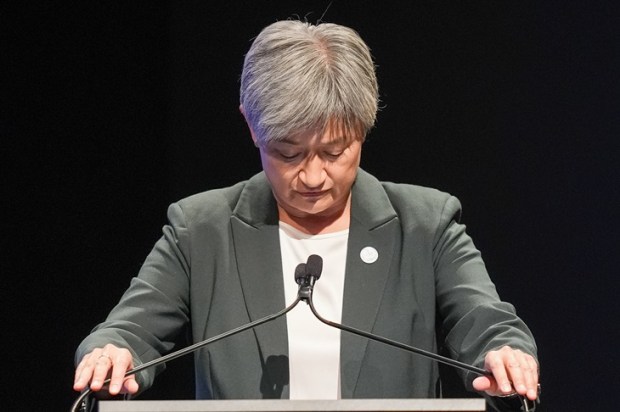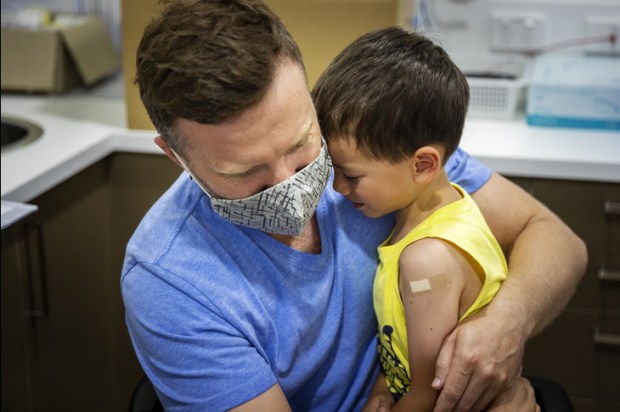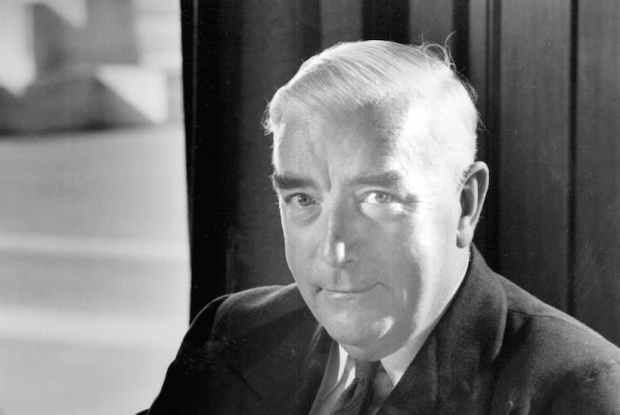One of the few positive aspects of this present crisis is that some politicians are finally revealing their true authoritarian colours. “Our liberties and human rights need to be changed, curtailed, and infringed – use whatever word you want”. Those are the remarkable words of London mayor Sadiq Khan just days ago.
Here the controversial British-Muslim politician joins a chorus of elitists who are clamouring for all sorts of authoritarian measures and lockdowns. As suggested by Brendan O’Neill, the well-known editor of Spiked Online and Spectator and Australian contributor “remember everything that is being said” by these anti-democratic elites who are presently ruling over us. “Because when this horrible crisis is over we are going to need to renew the fight for freedom and democracy with real vigour. These people have got to go”, he argues.
Of course, any rush to embrace such authoritarianism in our response to the present crisis will give the state terrifyingly broad powers. According to British journalist Peter Hitchens, governments all over the world are currently “resorting to risky, frantic measures”, including “the curfew, the presumption of guilt and the power of arbitrary arrest”. Hitchens is renowned for his rational and sensible approach. Here he offers a rather controversial view of the situation. After reminding us that the keyword here is precaution (because there is nothing wrong with practical precautions), he then goes on to admonish us that “the current panic measures do far more harm than good. They create the idea that we are in the midst of a terrifying plague that will kill us all, when the truth – though disturbing – is far less frightening”.
John Ionnidis is the highly regarded professor of medicine, of epidemiology and population health, of biomedical data science, and of statistics at Stanford University in California. In addition, he has pioneered the field of meta-research and is co-director of the Meta-Research Center at Stanford. When asked about the risk of dying from coronavirus, Professor Ionnidis authoritatively stated: “Reported case fatality rates, like the official 3.4 per cent rate from the World Health Organisation, cause horror and are meaningless … The real rate, adjusted from wide age range, could be as low as 0.05 per cent and as high as one per cent”.
Professor Ionnidis then explains the one situation where an entire, closed population was tested: the Diamond Princess cruise ship and its quarantined passengers. As he points out, “projecting the Diamond Princess mortality onto the age structure of the U.S. population, the death rate among people infected with Covid-19 would be 0.125 per cent But since this estimate is based on a thin data – there were just seven deaths among the 700 infected passengers and crew – the real death rate could stretch from five times lower (0.0025 per cent) to five times higher (0.625 per cent)”. It is also possible, according to him, “that some of the passengers who were infected might die later, and that tourists may have different frequencies of chronic diseases – a risk factor for Covid-19 infection – than the general population”.
Adding these extra sources of uncertainty, writes Professor Ionnidis, reasonable estimates for the fatality ratio of coronavirus in the general population would vary from 0.05 per cent to one per cent. By comparison, “a population-wide case fatality rate of 0.05 per cent [for Covid-19] is lower than seasonal influenza”, he says. If that is the true rate, Professor Ionnidis contends, “locking down the world with potentially tremendous social and influential consequences may be totally irrational”. And he notes also that “even some so-called mild or common-cold-type coronaviruses that have been known for decades can have case fatality as high as 8 per cent when they infect elderly people in nursing homes”.
A very similar opinion is expressed by the celebrated Dr David L. Katz, who has received no less than three honorary doctorate degrees and is the recipient of numerous academic awards for his significant contributions to public health. Dr Katz has held faculty positions at the Yale University Schools of Medicine, Public Health, and Nursing, and as adjunct professor at the George Washington University School of Medicine. He served as Director of Medical Studies in Public Health at the Yale School of Medicine for nearly a decade, is the founding director of Yale University’s Yale-Griffin Prevention Research Center, and is a former President of the American College of Lifestyle Medicine.
In a significant article published in The New York Times in late March, Dr Katz contends that “our fight against coronavirus’ may end up being worse than the disease”. The “unique” nature of coronavirus, according to Dr Katz, is that it results in only “mild” symptoms in 99 per cent of cases and that it appears to only pose a high risk to the elderly. To date, there are about 200 deaths from the coronavirus in the United States, he says. However, writes Dr Katz, these deaths have been mainly clustered among the elderly, those with significant chronic illnesses such as diabetes and heart disease, and those in both groups. This is not true, however, of other infectious diseases such as influenza. “The [normal] flu hits the elderly and chronically ill hard too, but it also kills children. Trying to create herd immunity among those most likely to recover from infection while also isolating the young and the old is daunting to say the least”, Dr Katz explains.
By taking an “at war” approach to fighting coronavirus – widespread shutdowns and isolation of the entire population – rather than a “surgical strike” approach focusing on the truly vulnerable, Dr Katz believes that “we have set ourselves on the path of “uncontained viral contagion and monumental collateral damage to our society and economy”. As he properly reminds us, we routinely differentiate between two kinds of military action: the inevitable carnage and collateral damage of diffuse hostilities, and the precision of a ‘surgical strike’, methodically targeted to the sources of our particular peril. The latter, when executed well minimizes resources and unintended consequences alike.
These facts make the disease particularly suited for a more strategic containment effort, rather than our current unsustainable, society-wide approach that threatens to undermine the economy, Dr Katz says. Why does it matter?, he asks rhetorically. According to Dr Katz, it is deeply concerning that “the social, economic and public health consequences of this near-total meltdown of normal life – schools and business closed, gatherings banned – will be long-lasting and calamitous, possibly even graver than the direct toll of the virus itself. The stock market will bounce back in time, but many businesses never will. The unemployment, impoverishment and despair likely to result will be public health scourges of the first order”, he says.
Once a Trotskyist Marxist and a member of the British Communist Party, Brendan O’Neill knows more than anybody else the long-term strategies of the authoritarian Left to advance their socialist utopia, and the “long march through the institutions”. In this present health crisis, the present ruling elites, argues O’Neill, are tirelessly agitating “for the government to shut down everyday life and send the police and the army to interrogate anyone who is outside without permission. They view us not as citizens to be engaged with, but as disease carriers to be controlled.”
O’Neill argues “We live under staggeringly anti-democratic elites.” According to him, not only have the mainstream media been at the forefront of “stirring up apocalyptic dreads”, but also the people’s refusal to panic has been a great source of frustration for the establishment in recent years. “From AIDS to climate change, from swine flu to coronavirus, it has been one apocalyptic scenario after another”, he reminds us. As O’Neill also points out, the irony is that the elites who readily envisage catastrophe think they are showing how seriously they take genuine social and medical challenges, such as coronavirus. In truth, they demonstrate the opposite. They confirm that they have absolved themselves of the reason and focus required for confronting threats to our society’.
Apocalypticism is a luxury of the new elites for whom crises are often little more than opportunities for the expression of their decadent disdain for modern society. To the rest of us, … [i]t threatens to spread fear in our communities, it causes us to lose our jobs, it mitigates against economic growth, and it harms democratic itself. Resisting the apocalypticism of the comfortable doom-mongers who rule over us is unquestionably the first step to challenging coronavirus.
During this coronavirus crisis, many governments seem to be driven less by a reasoned, evidence-fuelled strategy of limiting the spread of the disease and the disorganisation of economic life, than by an urge to be seen to be taking action. As a result, entire economies will be inevitably devastated by the severity of government action. Hundreds of thousands of people are losing their jobs, in the hotel and entertainment industry in particular. Inevitably, job losses will lead to far more homelessness, with financial pressures leading to widespread marriage breakdown and to a dramatic growth in crime, which always increases in times of economic crisis.
The other problem with the management of the current crisis is that it further exposes the authoritarian inclinations of the ruling elites. While emergency powers are sometimes needed, we are seeing international examples that the measures currently adopted to combat the widespread of the coronavirus will dramatically increase the power of the state, thus allowing governments to arbitrarily exercise mass surveillance powers and alarming restriction of civil liberties.
Yes, coronavirus poses a serious health risk. But the keyword is proportion and the current responses of our governments to the crisis poses one of the greatest threats to our present way of life. These draconian political measures provide a pretext for the authoritarian takeover of civil society that not only unleashes unprecedented economic mayhem, but it also threatens the very enjoyment of our fundamental rights and freedoms. We need to stop blindly trusting in whatever our governments say, and recover the old precautionary view that, indeed, the price of liberty is eternal vigilance.
Dr Augusto Zimmermann is Professor and Head of Law at Sheridan College, Perth/WA. He is also adjunct law professor at The University of Notre Dame Australia (Sydney campus) and President of the Western Australian Legal Theory Association (WALTA). A fully footnoted version of this piece is available by contacting Dr Zimmerman directly.
Got something to add? Join the discussion and comment below.
Got something to add? Join the discussion and comment below.
Get 10 issues for just $10
Subscribe to The Spectator Australia today for the next 10 magazine issues, plus full online access, for just $10.


























Comments
Don't miss out
Join the conversation with other Spectator Australia readers. Subscribe to leave a comment.
SUBSCRIBEAlready a subscriber? Log in